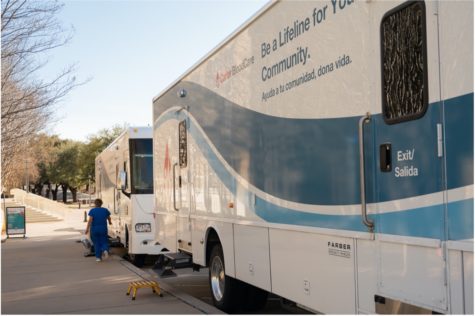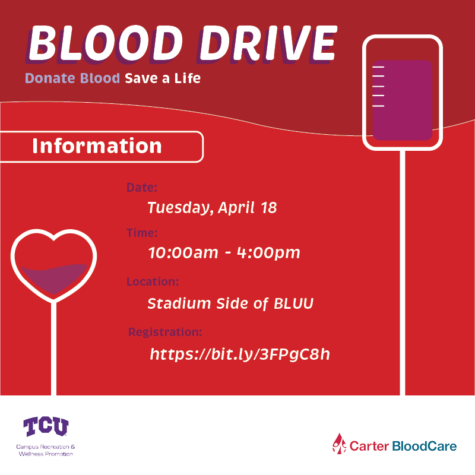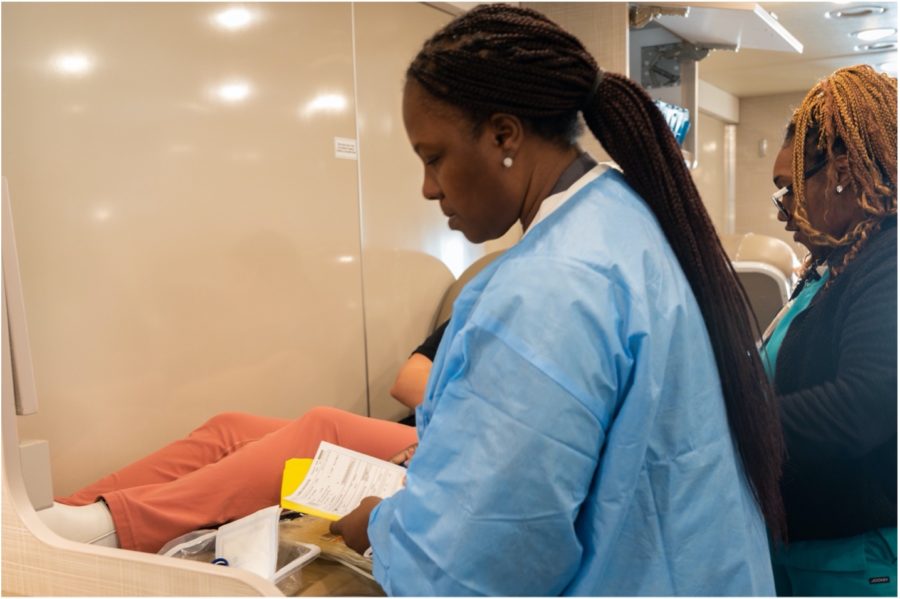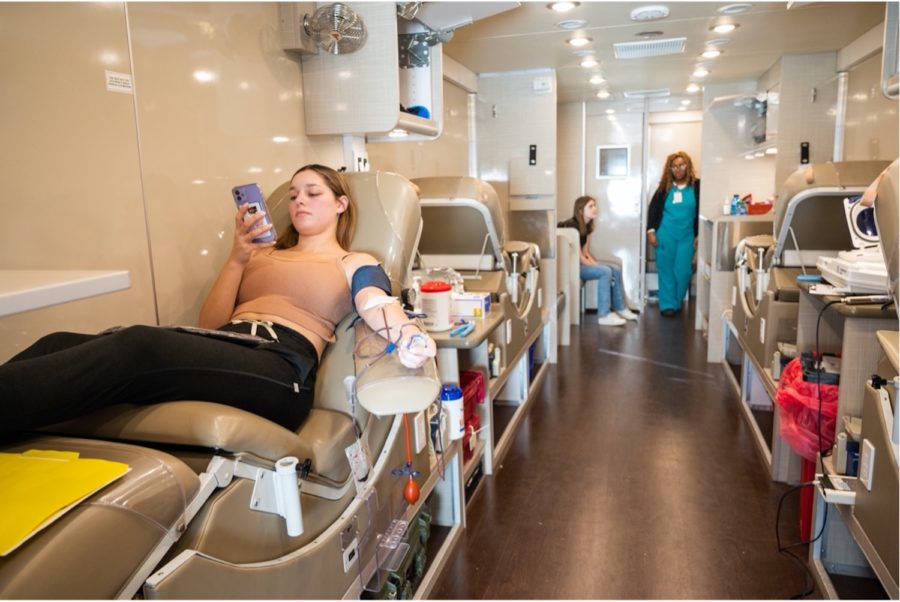Mobile units will return for the last TCU blood drive of the semester
Hazel Remington, a TCU movement science major, donates to the TCU blood drive in the Carter BloodCare mobile unit Feb. 22, 2023. TCU student Abbie Orndorff, left, and Carter phlebotomist Destiny Milam, right, discuss the donating process. (Photo by Sally Verrando)
Published Apr 11, 2023
The Carter BloodCare mobile units will return to TCU for the last blood drive of the semester on Tuesday, April 18.
Organizers hope to meet or exceed the goals of the previous TCU blood drive, especially in collection of the often-scarce, universal Type O negative blood.
“Since it’s the universal blood type and can be used for any patient, there is a constant, great demand for O negative,” said James Black, a spokesperson for Carter BloodCare.
It is also the only blood type that is safe for premature and unborn babies, Black explained.
“The need for blood is nonstop – 24/7,” Black said.
In February, 54 units of blood were collected, which exceeded Carter BloodCare’s goal of 36 units.
Those 54 donations of whole blood helped 162 local patients needing transfusions, according to Black.
“Blood collected at TCU on April 18 will stay local, helping patients at hospitals in Fort Worth and across the DFW area,” Black said.

Hazel Remington, a first-year movement science major, donated blood during the previous TCU blood drive.
As Remington reclined on a bed in the Carter BloodCare donation bus, her hand rhythmically squeezed a small blue ball to prime her veins for her first blood donation.
She said she always wanted to give and shared that “blood doesn’t scare me.”
During the last TCU blood drive, 52% of those who donated were first-timers.
Others were donor veterans. Rebecca Jane Brennan, an undecided major, and Morgan Garlick, a nursing major, are both first-years who said they had given blood three times.
“I will definitely be donating blood again after this experience,” Remington said.
The February drive “was one of our most successful blood drives we’ve had,” said organizer Brad Stewart, the associate director of TCU’s Wellness Education.

Reservations to donate are encouraged. Walk-ups are welcome if slots are available.
A photo ID is required and the process usually takes less than an hour.
To minimize adverse effects, eating a healthy meal at least two hours before donating and staying hydrated before and after are essential, Black said.
There are some considerations to donating, such as health history, travel history, medications and other conditions.
The minimum age to donate without parental consent is 17.
Check the website here to see the complete list for eligibility.
“I think it is a great opportunity to help serve others,” said Serena Nguyen, a senior and supply chain management major. “I know how significant an impact donating blood can have, especially given the low levels available.”

Whole blood divides into three parts—plasma, platelets and red blood cells.
Plasma is for patients with organ transplants, severe burns or infections.
Platelets are for cancer patients, surgical patients or people with gunshot wounds.
Red blood cells help people with anemia or blood loss.
Donors can make component-only donations at any of the 26 Carter donor centers.
Once blood donations are labeled, added into the tracking system, analyzed, tested and separated, the components distribute to more than 200 hospitals in 50 counties of North, Central and East Texas.
Have questions about blood donations? Click here.
For LGBTQ+ questions, click here.
Still looking for answers? Click here.
Video courtesy of Carter BloodCare



